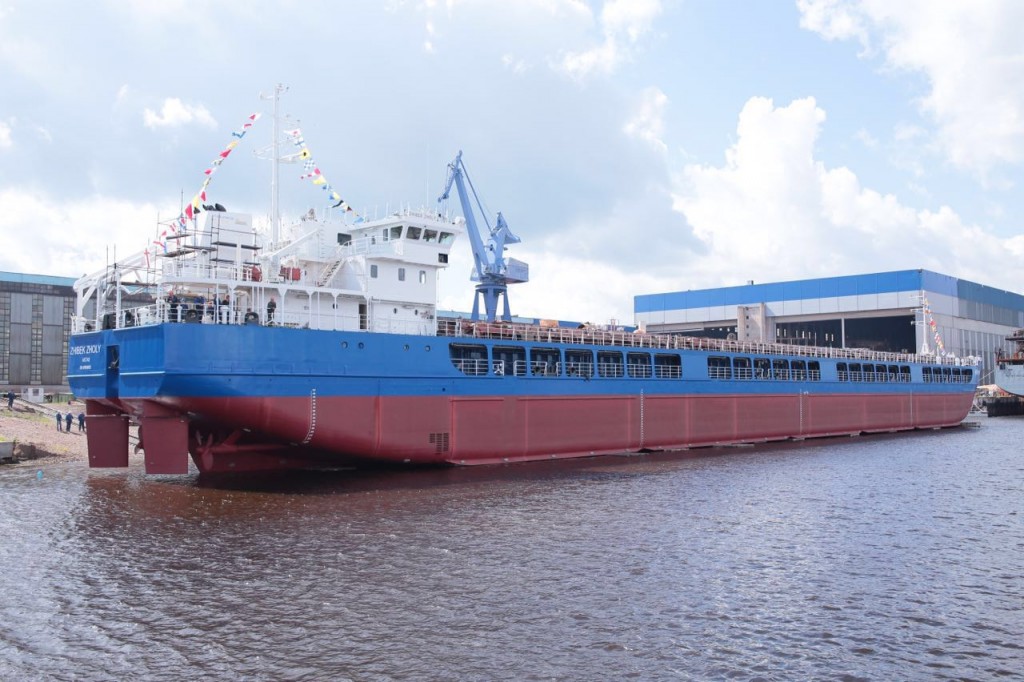ASTANA – The Zhibek Zholy, a dry cargo vessel with a capacity of 7,500 dead weight tonnage (DWT), was launched July 12 in Shlisselburg, Russia, reported the Kazakhstan Temir Zholy (KTZ) press office.
KTZ President Askar Mamin, Russia’s Deputy Transport Minister Victor Olerskiy and Leningrad Oblast government First Deputy Chairmanan Finance Committee Chairman Roman Markin attended the launch ceremony.
“It seems symbolic that the name of the new ship, Zhibek Zholy (Silk Way), has been given by President of Kazakhstan Nursultan Nazarbayev. There is a large-scale programme for modernisation of transport infrastructure. KTZ’s strategy pays special attention to the development of multimodal transport and the maritime fleet is an important element of it,” said Mamin.
He noted the importance of this event in the framework of implementing the President’s instructions to improve Kazakhstan’s transit and transport potential and develop the dry cargo fleet, as well as executing projects of the Nurly Zhol programme.
KTZ Express Shipping, established in 2013 to transport grain, steel products and other general cargo, purchased two dry cargo vessels with a 5,000 DWT. The main cargo shipped through Aktau port is carried out on the basis of “own cargo-own port-own fleet.”
Zhibek Zholy joins Atameken as the second new dry cargo ship acquired by the fleet this year.KTZ Express and Croatian shipyard ULJANIK signed a shipbuilding contract this summer for construction of two wagon carriers.
By 2020, the number of dry cargo fleet vehicles will be increased to 20 units and service up to 55 percent of the general cargo transportation in the Caspian Sea exported through Aktau.
“The Caspian Sea is a link of international corridors between East-West and North-South cooperation and also plays an important role in implementation of the transit potential of the region,” said Mamin.
Olerskiy noted the event is “an example of successful integration between historic neighbours Kazakhstan and Russia.” He also called for further cooperation in various sectors between Kazakh and Russian companies.
Experts believe consolidating efforts to expand mutually-beneficial cooperation in the Caspian region and common development of transcontinental transport will provide new opportunities for all participants.
The project has been realised with the support of the European Bank for Reconstruction and Development.

